Jazz
What is Jazz?
Jazz
Jazz is more than a music genre; it is a conversation, a story of freedom, and one of America's most significant cultural exports. Originating in the African-American communities of New Orleans, Louisiana, in the late 19th and early 20th centuries, Jazz is a musical tradition characterized by its sophisticated harmonies, syncopated rhythms, and a fundamental emphasis on improvisation.
Core Characteristics
- Improvisation: The spontaneous creation of a melody over a repeating chord progression. It is the heart of Jazz, allowing for personal expression and in-the-moment dialogue between musicians.
- Swing Rhythm: A rhythmic feel that creates a forward momentum, characterized by a pattern of long and short notes. It's the groove that makes you want to tap your feet.
- Blue Notes & Harmony: The use of "blue notes" (flatted 3rd, 5th, and 7th degrees of the scale) and complex, extended chords gives Jazz its distinctive, emotionally rich sound palette.
- Call and Response: A musical pattern where one musician plays a phrase (the "call") and is answered by another musician or group (the "response").
A Journey Through Time: The Evolution of Jazz
Jazz has constantly evolved, spawning numerous subgenres. Each era brought new ideas, instrumentation, and legendary artists who pushed the boundaries of the music.
| Era / Style | Approx. Period | Key Characteristics | Pioneering Artists | Landmark Albums |
|---|---|---|---|---|
| Early Jazz / Dixieland | 1910s–1920s | Collective improvisation, polyphonic texture, trumpet/clarinet/trombone frontline. | Louis Armstrong, Jelly Roll Morton, Sidney Bechet | Louis Armstrong & His Hot Five, The Complete Hot Five and Hot Seven Recordings |
| Swing / Big Band Era | 1930s–1940s | Large ensembles, written arrangements with solos, strong danceable rhythm. | Duke Ellington, Count Basie, Benny Goodman, Billie Holiday | Duke Ellington - Ellington at Newport, Benny Goodman - The Famous 1938 Carnegie Hall Jazz Concert |
| Bebop | 1940s | Fast tempos, complex chord progressions, focus on virtuousic solos, smaller groups. | Charlie Parker, Dizzy Gillespie, Thelonious Monk | Charlie Parker - Charlie Parker with Strings, Thelonious Monk - Brilliant Corners |
| Cool Jazz | 1950s | Relaxed tempos, lighter tones, formal arrangements, often lyrical. | Miles Davis, Dave Brubeck Quartet, Stan Getz | Miles Davis - Birth of the Cool, Dave Brubeck Quartet - Time Out |
| Hard Bop | 1950s | A soulful extension of Bebop incorporating influences from blues, R&B, and gospel. | Art Blakey & The Jazz Messengers, Horace Silver, Clifford Brown | Art Blakey and The Jazz Messengers - Moanin', Cannonball Adderley - Somethin' Else |
| Modal Jazz | Late 1950s–1960s | Improvisation based on scales (modes) rather than chord changes, creating a more spacious sound. | Miles Davis, John Coltrane, Bill Evans | Miles Davis - Kind of Blue, John Coltrane - A Love Supreme |
| Free Jazz / Avant-Garde | Late 1950s–1960s | A departure from traditional harmony, rhythm, and structure in pursuit of total freedom. | Ornette Coleman, Cecil Taylor, Pharoah Sanders | Ornette Coleman - The Shape of Jazz to Come, Eric Dolphy - Out to Lunch! |
| Jazz Fusion | Late 1960s–1970s | A blend of jazz improvisation with the power of rock music, funk, and electronic instruments. | Miles Davis, Weather Report, Herbie Hancock & The Headhunters | Miles Davis - Bitches Brew, Weather Report - Heavy Weather |
Cultural Impact & Legacy
Jazz is often called "America's classical music." Its influence is profound and can be heard in countless other genres, including rock and roll, funk, R&B, and hip-hop. It served as a powerful voice for African Americans during the Civil Rights Movement and has become a global language, with vibrant jazz scenes in countries all over the world.
Awards & Recognition
While the genre itself doesn't win awards, its practitioners and defining works are consistently honored at the highest levels.
- Grammy Awards: Features numerous dedicated Jazz categories, including "Best Jazz Vocal Album," "Best Jazz Instrumental Album," and "Best Large Jazz Ensemble Album." Artists like Miles Davis, Ella Fitzgerald, and Wynton Marsalis have won dozens of Grammys.
- Pulitzer Prize for Music: This prestigious award has been given to several jazz compositions, cementing the genre's status as a serious art form. Recipients include Wynton Marsalis for Blood on the Fields (1997), Ornette Coleman for Sound Grammar (2007), and Henry Threadgill for In for a Penny, In for a Pound (2016).
View questions by category
The Roots of Jazz
Exploring the birth, early history, and social background of jazz.
A Kaleidoscope of Styles
Understanding the characteristics and evolution of various styles, from Swing to Fusion.
Masters & Legends
Getting to know the great musicians who defined and changed jazz.
The Secrets of Theory & Improvisation
Unveiling the unique harmony, structural forms, and the art of improvisation in jazz.
The Dialogue of Instruments
Focusing on the roles, evolution, and unique combinations of various instruments in jazz.
Cultural Echoes
Exploring the deep connections between jazz and society, political movements, and other art forms.
The Contemporary Jazz Scene
Focusing on the globalization, fusion with new elements, and future trends of jazz.
The Art of Listening
Providing introductory tips, points of focus, and the unique charm of the live experience for appreciating jazz.
Jazz Philosophy & Personal Takes
Involving personal interpretations, subjective views, and philosophical thoughts on the spirit of jazz.
Videos for Jazz

夜ジャズBGM - ゆったりジャズBGM - 作業用BGM - 勉強用BGM - 夜のしっとりBGM
BGM channel

朝カフェBGM - ピアノ&ギターBGM - ジャズ+ボサノバBGM - 作業用BGMに!
BGM channel
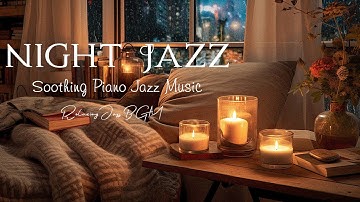
Exquisite Night Jazz Sleep Piano Music ~ Sweet Jazz Background Music for Deep Sleep, Relax, Work,..
Relaxing Jazz BGM

Night Jazz - Los Angeles - Melody Jazz Music - Relaxing Ethereal Piano Jazz Instrumental Music
Smooth Piano Jazz

【カフェ音楽】大人の雰囲気 - 夜に聴きたいアコースティックジャズ -
Relax Music BGM CHANNEL

部屋で聴きたい最高のジャズ音楽 - Relaxing Jazz Music - 作業や読書用に♬
Relax Music BGM CHANNEL

Smooth of Night Jazz Exquisite Jazz Piano Music Calm Background Music for Relax, Chill, Read,
Smooth Jazz Lounge

【リラックスJAZZ BGM】勉強用BGM - 作業用BGM - ゆったりジャズでリラックス!!
Cafe Music BGM channel

『有名スタンダード・ジャズ BGM (パブリックドメイン集) vol.2 』Famous Jazz Standard Publick Domain Series vol.2 ★作業用・勉強用・カフェ★
Jazz Lounge Piano BGM 『ジャズ・ラウンジピアノ BGM』

ギターとサックスとピアノで奏でる、心躍るジャズフュージョン
Sound Bouquet
![1940's Jazz Classics [Jazz, Jazz Classics, Smooth Jazz]](https://i.ytimg.com/vi/-bBzIgIaPS4/hq720.jpg?sqp=-oaymwEjCOgCEMoBSFryq4qpAxUIARUAAAAAGAElAADIQj0AgKJDeAE=&rs=AOn4CLB0k7X_xBJx_NBcKklKxnahldkhsg)
1940's Jazz Classics [Jazz, Jazz Classics, Smooth Jazz]
PLAYaudio - Smooth Jazz and more
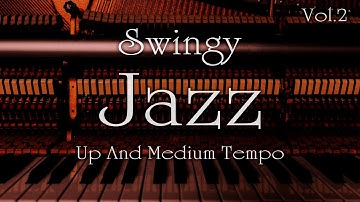
『ノリの良い有名スタンダード・ジャズ BGM Vol.2』 Swingy Famous Jazz Standards BGM Vol.2★作業用・勉強用・Cafe・Barタイムに★
Jazz Lounge Piano BGM 『ジャズ・ラウンジピアノ BGM』
![【ジャズ音楽】自宅を癒しに、静かでリラックスできる音楽[カフェ・作業用bgm]](https://i.ytimg.com/vi/Mx4shNn0Tz0/hq720.jpg?sqp=-oaymwEjCOgCEMoBSFryq4qpAxUIARUAAAAAGAElAADIQj0AgKJDeAE=&rs=AOn4CLDUtzZ-SPhc4m68e03dnVveHJthlQ)
【ジャズ音楽】自宅を癒しに、静かでリラックスできる音楽[カフェ・作業用bgm]
Soul of the ocean / Healing Song

夏の夜ノスタルジックなカフェで聴く寛ぎジャズピアノ【カフェBGM】
Color and Music【癒しの色と音楽】
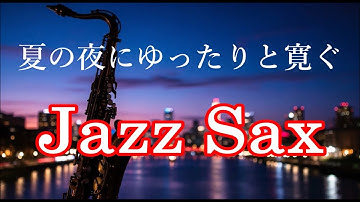
夏の夜に聴く ゆったりジャズ 🎷 サックスの音色が心地いい… ゆったりとくつろげる ジャズ BGM - 癒しのジャズ - リラックス音楽・作業用BGM 🎷
Jazz BGM / ジャズ BGM

4K Cozy Coffee Shop with Smooth Piano Jazz Music for Relaxing, Studying and Working
Relaxing Jazz Piano
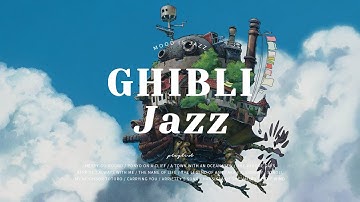
Playlist | ジブリ、ジャズ | GHIBLI Jazz
Jazzne | 기분Jazz네

BILL EVANS | JAZZ ICONS PLAYLIST | 4K | PART I
Jazz Mix
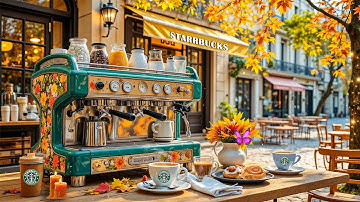
【朝のBGM /平和な雰囲気】BGM: 8月のスターバックスミュージックリスト-カフェでジャズを聴きながら、心地よい秋の雰囲気を味わう-勉強や仕事に最適な、歌詞のないボサノバ コーヒー ミュージック。
Starbucks Bossa Coffee

【大定番】一人で飲みたい時に聴ける極上のジャズピアノ ~ Relaxing Deep Quiet jazz ~
Relax Music BGM CHANNEL
Sub Categories
How to Get $FAQ Rewards
We are seeking contributions from many people to reach 100 million questions. We will provide $FAQ token rewards to all contributors
- 1. Ask questions to earn $FAQ rewards
- 2. Provide API_KEY to earn $FAQ rewards
- 3. Random drops of $FAQ rewards when browsing questions
 How was jazz initially perceived by mainstream society? Was it considered 'high art' or 'degenerate music'?
How was jazz initially perceived by mainstream society? Was it considered 'high art' or 'degenerate music'?